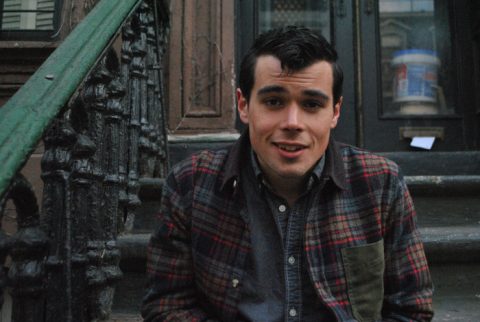You write poetry, creative nonfiction, and fiction. Can you tell us a little about how you move between these genres? Do you consider one to be your “primary” genre? Do you explore overlapping themes in each?
Writing is a wild process in this regard, because I believe there’s a great deal of fluidity between genres, but also a lot of specificity to each, especially in terms of craft. A lot of my writing begins first as a poem — which to me is a way of questioning, wondering, challenging, or offering something to the world. It’s a place of blooming, a poem is. And the act of writing of a poem is a very generative process for me — it often creates more avenues in my mind than closes them. Sometimes I explore those avenues as essays, sometimes as stories, and sometimes still as other poems. To me, moving between each genre is simply an act of granting myself the permission to do so.
You are co-founder of Dead Rabbits Reading Series, a monthly reading series in Upper Manhattan. Can you tell us more about this series? How did it get started? Has it changed since it began in 2014? Do you have any advice for writers who are thinking about starting their own reading series?
I can’t believe it’s been that long! The series started as a very simple idea between myself and two friends — Katie Rainey and Katie Longofono. We wanted to invite the kind of writers who we were in grad school with — working, new, unpublished, trying to publish — to read alongside more established writers. With that in mind, we just asked people whose work we admired to read, which was so scary at first. Over the past few years, the series has first and foremost offered a sense of community beyond literature to me and my friends, many of whom I met at one of our readings. Katie Rainey has even started a press that has spun off from the series, which is wonderful. I think anyone who is considering starting a series should, first and foremost, not doubt the fact that an audience exists, no matter where you are, for people sharing their art. It always will if you offer it. Secondly, you should be open and generous about understanding the responsibility you are taking on and listening to those who share ways to better your practice — because it is a practice. Invite diverse readers. Don’t tokenize. Always be representative of the literary landscape. Be fun. Don’t read at your own reading unless it’s a special occasion. Be serious and not serious. Play games. Treat people as well as you can. Respect their art. Value your space. You know, simple things.
We both have MFAs from Sarah Lawrence College (I was there a number of years before you – I won’t disclose exactly how many years but it’s enough to have a deep nostalgia for being a student there). What was your favorite part about the program? What do you miss the most about being an MFA student?
I loved the community at Sarah Lawrence, and it’s what I missed most. I loved that class spilled out and wound up in someone’s living room. I loved how much I read and also how much I talked about what I read. I felt part of something bigger. I felt like art was important. I know that art is important now, but the world so often undermines that feeling. Being in a community of working writers made me feel, every day I was up there, like the sentence or line I was chewing on over the course of that day was worth chewing on. I miss that. I hate the days now when I have to actively remind myself of that.
What kind of story would you love to see in your queue this week?
Something surprising, in whatever way that manifests itself — whether in form or content or theme. I love a story that takes the risk of taking a risk. And it doesn’t always have to be in terms of content (I think sometimes people think that’s what I mean when I say that). I really value risks of form and language. But look — I love reading and I love the way a story or a poem just opens the door to your feelings without knocking. That joy, that sorrow — it just shows up. I’d love to read a story that does that.


 The core workshop of SmokeLong Fitness is all in writing, so you can take part from anywhere at anytime. We are excited about creating a supportive, consistent and structured environment for flash writers to work on their craft in a community. We are thrilled and proud to say that our workshop participants have won, placed, or been listed in every major flash competition. Community works.
The core workshop of SmokeLong Fitness is all in writing, so you can take part from anywhere at anytime. We are excited about creating a supportive, consistent and structured environment for flash writers to work on their craft in a community. We are thrilled and proud to say that our workshop participants have won, placed, or been listed in every major flash competition. Community works.